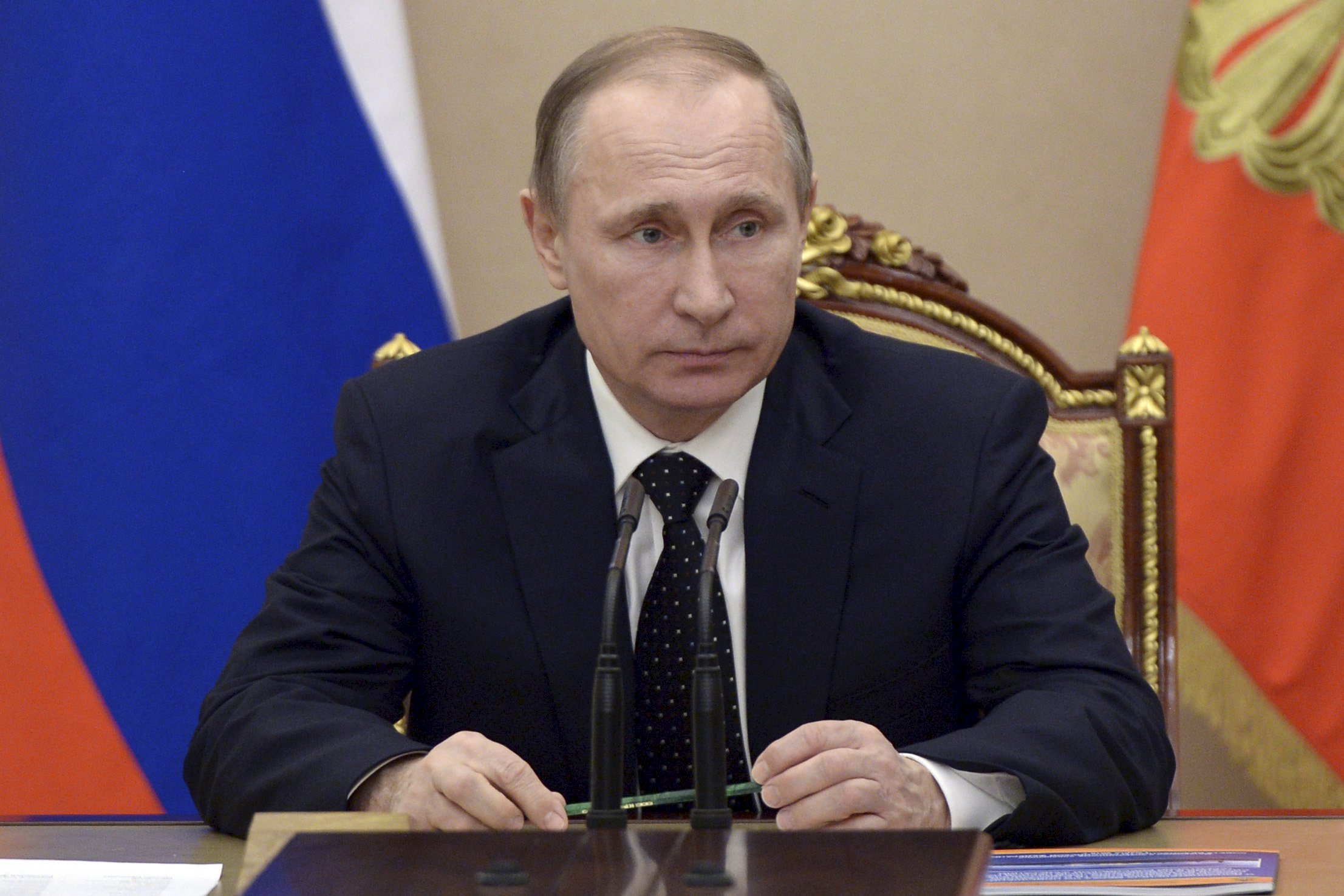
It's become almost pointless to reproach Donald Trump for inconsistency. But the Republican presidential front-runner should be aware that he cannot both take on Senator Jeff Sessions of Alabama as his top national security adviser and claim to be pals with President Vladimir Putin of Russia.
Trump has laid down his line on Putin multiple times. The candidate has said he would "get along" with the Russian leader, whose depredations in Ukraine are largely a European problem. Russia should be allowed to help President Bashar al-Assad fight the IS in Syria.
And, of course, Trump was tickled pink when Putin slyly praised him in December, calling him an "undoubtedly brilliant, talented person" and "the absolute leader of the presidential race," though the latter wasn't true then and isn't strictly true now, given that Hillary Clinton has the advantage in one-on-one polls. Trump likes saying in campaign speeches that Putin "called him a genius," though that isn't strictly true, either.
Sessions, recently appointed chairman of Trump's national security advisory committee, is not a proponent of "getting along" with Putin. The senator assailed Russia's 2014 annexation of Crimea in the harshest terms, and criticised the administration for not foreseeing Russian aggression and called for tough sanctions:
I believe a systematic effort should be undertaken so that Russia feels pain for this. Because if you don't act now to make some sanctions against Russia then why will they believe in the future that we're going to impose sanctions or do anything aggressive if they move forward to take all of Ukraine, all of Georgia?
As for the US-Russia relationship, Sessions said, "the bottle of milk has shattered on the floor and you can't put it back together."
A year later, Sessions was still in favour of letting Russia know its place:
We don't know whether the Minsk Agreement will hold, I don't think it's holding very well now. We have the Estonians, the Lithuanians, the Romanians, they're very worried. This is reality, I wish it weren't, but I'm afraid it is. It needs to be clear that Russia knows that there will be a high price to pay if this behaviour continues.
That is a far cry from what Putin might reasonably be led to expect from a Trump presidency. In December, the Russian leader said of Trump:
He is talking about moving to a different level of relations, a closer, deeper relationship with Russia, and how can we but welcome that? Of course we welcome that.
Sessions bills himself as a foreign-policy realist and an opponent of US military interventionism, which he describes as "overthrowing regimes in the dangerous attempts to plant democracies." Yet the senator voted for the Iraq invasion in 2003. He is a hard-line conservative on foreign policy, as on everything else. His support of Trump apparently is based on shared views on immigration and trade: Sessions wants to keep immigrants out and talks, just as Trump does, about countries such as China and Mexico artificially devaluing their currencies to make their exports to the US more competitive.
On Russia, however, Trump has sounded opportunistic and perhaps a little star-struck when it came to Putin. If Sessions has anything to do with it, this will be over soon.
I'm not sure the analysis of political positions and convictions is a worthwhile exercise when it comes to Trump: Throughout the campaign, he has seemed to say whatever came to mind, regardless of his knowledge of the subject at hand -- or his actual beliefs, if any. His moves have been instinctive rather than considered. Perhaps this also applies to the selection of Sessions: Trump has long said he was going to appoint the smartest people and the best negotiators to his team, but names haven't been forthcoming. Now, as he faces more heat from increasingly desperate Republican rivals and as he prepares to battle Clinton, who is extremely knowledgeable about foreign policy and national security, he needs to let people know who might be on his team.
Sessions is probably a good choice in terms of winning Republican voters, but it also indicates that, should Trump win the presidency, his foreign policy would hardly be novel, revolutionary or weird: He is going to rely on old-school Republican politicians. - Bloomberg View